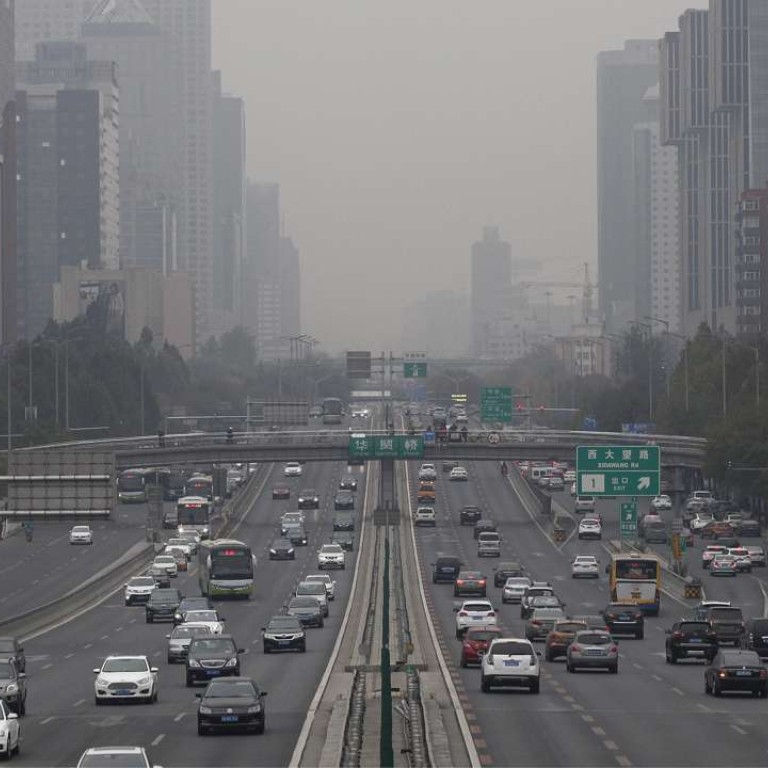
Chinese drugmakers suspend trading after orders to stop production amid worsening smog
The smog enveloping the Chinese capital of Beijing has gotten so bad that even drugmakers in the neighbouring province were ordered by the local government over the weekend to temporarily cease production, a move that will deal a blow to the profits of the country’s major listed pharmaceuticals.
CSPC Pharmaceutical Group, a manufacturer of antibiotics like penicillin, halted trading on the Hong Kong bourse on Monday morning pending release of information on a government order to hold off on its production. SSY Group, a pharmaceutical giant that produces intravenous infusion solutions, also suspended its shares for the same reason.
Both companies are based in Shijiazhuang, the capital of the northern Chinese province of Hebei, not far from Beijing where air pollution again reached hazardous levels last week, prompting authorities to advise school pupils to stay indoors.
The air quality in the coal-powered region of China is so notorious that Premier Li Keqiang declared war on it years ago, resulting in restricted use of cars in some cities and the closure of steel plants that emit tiny particulates into the atmosphere.
“We received a directive from the government of Shijiazhuang on Friday [urging] all drugmakers in the city to stop their manufacturing activity as soon as possible, and await further approval for resumption,” said North China Pharmaceutical, another leading industry player, in a filing to Shanghai stock exchange on Sunday.
As Beijing braces for more smog in November, cement producers, chemical factories and pharmaceutical companies are all being targeted by the Hebei government which believes such industries are adding to the already toxic mix in the air.
These cities should now control their air quality with reference to requirements they had previously followed when Beijing was holding the [Apec] summit in 2014
Six cities in Hebei were singled out in the latest move to cut the smog, according to a directive issued by the provincial government on Thursday. All construction sites, except for those “crucial for civil affairs”, must be shut down, and the burning of leaves and garbages is also prohibited.
“These cities should now control their air quality with reference to requirements they had previously followed when Beijing was holding the Asia-Pacific Economic Co-operation summit in 2014,” the directive said. Beleaguered citizens dubbed the clean skies seen in Beijing during the period of the meeting as “Apec blue”.
Experts believe the new measures will take a heavy toll on drugmakers based in Hebei, as their sales would be hit by the shrinking output during a period traditionally considered a peak season in the industry.
“That will bite into not only these companies’ earnings but also the revenues of the Hebei government as the factories are big taxpayers,” said Shi Lichen, founder of Dingchen Pharmaceutical Management Consulting.
China’s 3 trillion yuan pharmaceutical industry contributes to less than 3 per cent of the nation’s total gross domestic product, yet accounts for about 6 per cent of pollutant emissions, official figures showed, putting it under public scrutiny amid China’s deteriorating air quality.
Many of the plants churn out harmful organic compounds containing toxic chemicals and some have already been subject to a suite of environment protection regulations and standards.

